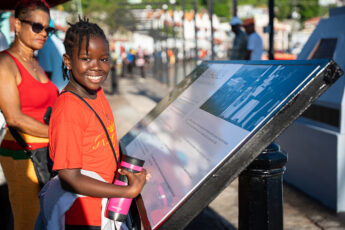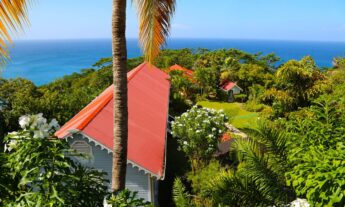Grenada celebrates 50 years of Independence
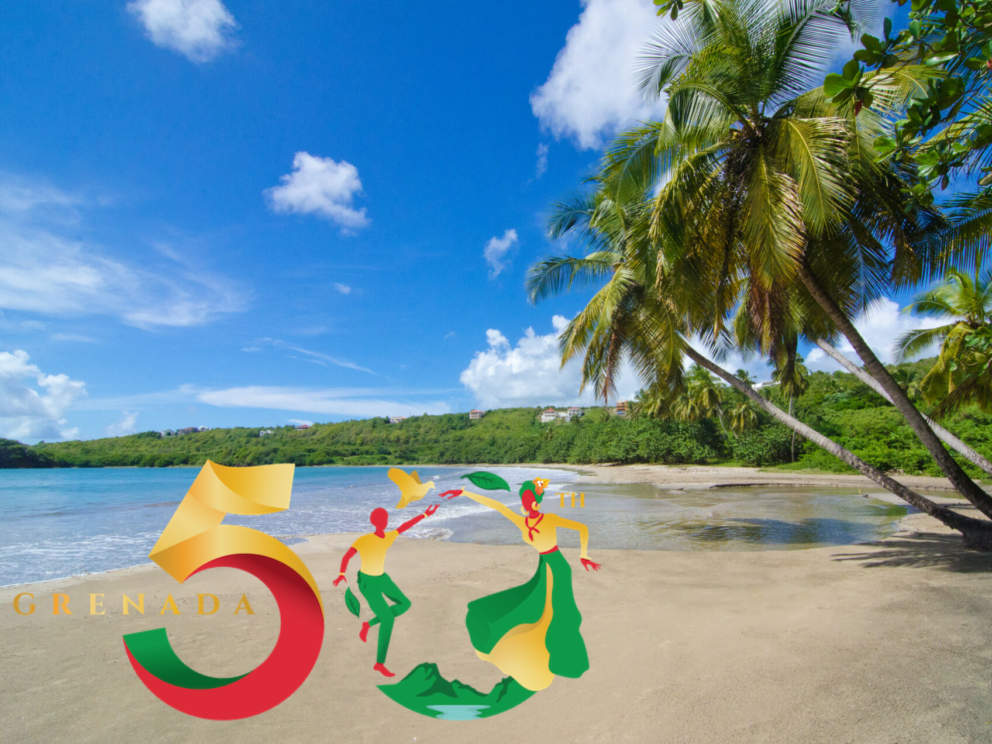
Independence for Grenada
This February, the island nation of Grenada celebrates its independence from Britain, achieved exactly 50 years ago in 1974. At Paxton House, we are very proud of our connections with Grenada and are mixing a glass of rum punch to celebrate (recipe here). Today this lush volcanic Caribbean island – the Isle of Spice – is a democratic independent nation with a rich culture of its own and a thriving economy based on tourism. Things were very different 260 years ago in 1764, when a young entrepreneur from the Scottish Borders borrowed money to buy a plantation at the north of the island. This young man was Ninian Home and, at this time, Grenada’s economy was based on slavery. Enslaved people, who had been trafficked across the Atlantic from Africa, worked plantations for their British and French overlords producing mostly sugar, the profitable crop of the era, but also coffee and cocoa. Ninian Home ‘owned’ around 200 enslaved people on his main plantation, Waltham, and others on Paraclete, which he owned in partnership. Ninian prospered in the Caribbean and, within ten years, felt able to borrow money to buy a fine house in Scotland – Paxton House – and establish himself as a British country gentleman.
Grenada in Ninian Home’s time
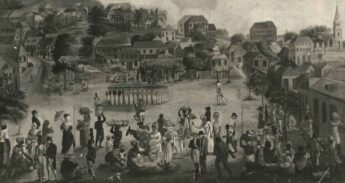
When Ninian arrived in Grenada, the island was politically volatile. It had become a British possession only a year earlier, having been ceded by France at the end of the Seven Years’ War. It was the French who had established the first plantations in the 1650s, when they conquered the Arawak-speaking Amerindian population of Caribs. The warlike Caribs had first encountered Europeans when Christopher Columbus briefly stopped on his third voyage of discovery in 1498. He named the island Conceptión but the Spanish referred to it as La Grenada; the French knew it as La Grenade; and the British as Grenada, part of the Windward Island chain which also included St Lucia and St Vincent. Today Grenada is a Tri-Island state made of Grenada, Carricaou, and Petite Martinique. As many as 130,000 Africans were brought to work the plantations on Grenada between 1669 and the abolition of the slave trade in 1807, the highest numbers during British rule when agriculture expanded from small indigo, cocoa and coffee farms to larger labour intensive sugar plantations. The enslaved people who worked the land were not freed until 1833 and remained indentured until 1838.
Grenada today
This history has given modern Grenada a rich mix of cultures – French, Spanish, British, Amerindian, African and East Indian. English is the official language but you will also hear a French-African patois. Carnival is a major celebration; steel bands and calypso are popular forms of music; storytelling is an important tradition and cricket is the national sport. Tourists make the most of the island’s pristine beaches, or trek into the lush rainforests of the interior on mountain trails. The mountains were the stronghold of the rebel leader, Julien Fédon, who led a Franco-African revolt against British rule in 1795. By this time, Ninian Home’s ambitions had led him to accept the post of Lieutenant-Governor and he was captured and executed by the rebels.
Why is Grenada important to Paxton House?
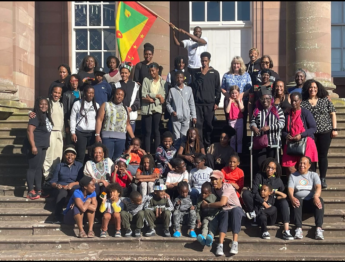 For Paxton House, the period of Ninian Home’s ownership was transformational. He and his wife, Penelope, commissioned an exception suite of interiors from the leading British makers of the period, Robert Adam and Thomas Chippendale. They visited frequently between 1774 and 1794, entertained their friends and relatives and brought with them at least two of their enslaved domestic servants, Martine and Tom. Their presence is still strong in the house and the watercolours they commissioned of Paraclete Plantation give us a rare insight into the working of an eighteenth century Grenadian sugar estate. The Home family maintained their connections with Grenada long after they ceased to own plantations in the early nineteenth century. Today we, at Paxton House, are proud to be associated with Descendants, an African Caribbean history and arts group based in London, with whom we continue a cultural exchange, helping new generations in Britain explore the legacy of transatlantic slavery. Descendants has recently celebrated 30 years since its foundation by Margaret Noel in 1993. We have been researching the history of the Grenadian plantations and recovering the identity of some of the enslaved individuals who worked there. You can discover more in exhibitions at Paxton House and online in the ‘Sugar and Slavery’ trail.
For Paxton House, the period of Ninian Home’s ownership was transformational. He and his wife, Penelope, commissioned an exception suite of interiors from the leading British makers of the period, Robert Adam and Thomas Chippendale. They visited frequently between 1774 and 1794, entertained their friends and relatives and brought with them at least two of their enslaved domestic servants, Martine and Tom. Their presence is still strong in the house and the watercolours they commissioned of Paraclete Plantation give us a rare insight into the working of an eighteenth century Grenadian sugar estate. The Home family maintained their connections with Grenada long after they ceased to own plantations in the early nineteenth century. Today we, at Paxton House, are proud to be associated with Descendants, an African Caribbean history and arts group based in London, with whom we continue a cultural exchange, helping new generations in Britain explore the legacy of transatlantic slavery. Descendants has recently celebrated 30 years since its foundation by Margaret Noel in 1993. We have been researching the history of the Grenadian plantations and recovering the identity of some of the enslaved individuals who worked there. You can discover more in exhibitions at Paxton House and online in the ‘Sugar and Slavery’ trail.
We love to welcome all visitors to Paxton House, but if anyone with a connection to Grenada pops by, please make yourself known, particularly in this 50th anniversary year of independence. Meanwhile, banish those February blues with a glass of our rum punch and raise a glass with the inhabitants of Grenada as they celebrate 50 years of independence.
